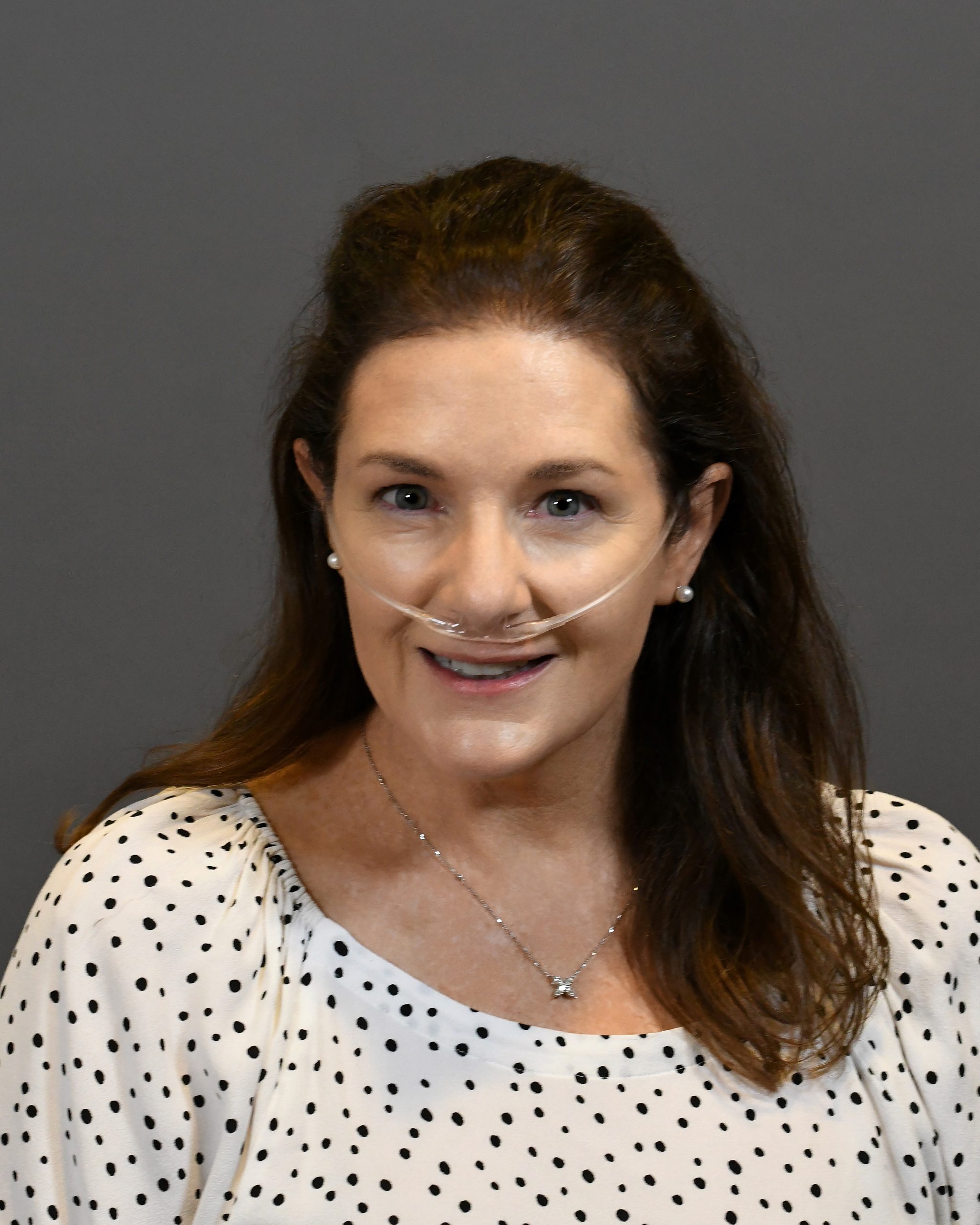
Colleen Connor is a patient advocate and volunteer living with pulmonary arterial hypertension, as well as a breast cancer survivor, and a member of the Board of Trustees of the Pulmonary Hypertension Association (PHA). Since her initial diagnosis in 2007, Ms. Connor has dedicated herself to helping and encouraging others with pulmonary hypertension to hope for a cure, and has engaged in numerous advocacy and fundraising activities to advance awareness and research. She is a member of the ABIM Pulmonary Disease Board.
Why did you want to join ABIM Governance?
My advocacy work grew organically from my own patient journey and the incredible support I received from the pulmonary hypertension community early in my diagnosis. Experiencing both excellent and inadequate care taught me that certification standards truly matter—they can be the difference between life-threatening delays and life-saving treatment.
I applied to join ABIM Governance because I believe deeply that quality care isn’t just an aspiration—it’s a commitment that requires rigorous standards and accountability. Through my work advocating for Pulmonary Hypertension Care Center accreditation, I’ve seen firsthand how certification processes elevate care quality. Just as Pulmonary Hypertension (PH) centers must meet stringent benchmarks to earn accreditation, physicians need robust certification standards to demonstrate their commitment to excellence. I wanted to contribute to an organization that shares my conviction that ongoing evaluation and improvement are essential to maintaining the highest standards of patient care. ABIM’s mission resonates with my lived experience that the difference between good and exceptional physicians can literally be life-saving.
What do you think the value of having public members on ABIM Governance is?
While physicians bring invaluable clinical expertise, public members ensure that patient voices and outcomes remain at the center of every decision. We ask critical questions like, How does this policy affect patients? Are we truly serving those who depend on certified physicians for their lives and wellbeing? As someone who lives with the daily reality of requiring exceptional medical care, I hope to help the Specialty Board see beyond processes to the real human impact of our decisions.
What have you learned as a member of ABIM Governance?
As a public member, I’ve gained tremendous appreciation for the sophisticated deliberation and complexity behind board certification. The depth of consideration that goes into every assessment tool, every policy change and every technological advancement is remarkable. I’m particularly impressed by ABIM’s investments and genuine commitment to evolving with current medical realities and advancing technology while maintaining rigorous standards, and with ABIM’s deep consideration of how changes impact physicians. ABIM doesn’t just maintain standards—it actively innovates to ensure certification remains relevant, meaningful and responsive to how medicine is practiced today in our rapidly changing healthcare landscape.
What impact do you feel you’ve had on the Pulmonary Disease Board?
I hope I’ve been able to contribute perspective and optimism to our work. Since I use supplemental oxygen 24/7, my experience helps bring the patient reality into our discussions and keeps us grounded in why this work matters. I try to connect our conversations to how our decisions might impact patients’ daily lives.
What I hope has been valuable is my years of engagement with the patient community through support groups and advocacy work. This gives me insight not just into my own experience, but into the diverse challenges patients face and how certification standards can make a real difference in the quality of care they receive.
I’ve been told that my perspective helps keep our conversations focused on the fundamental truth that ABIM’s work directly improves people’s lives. I love being able to share stories of hope—how excellent physicians have enabled me and others to thrive despite serious diagnoses. I hope I’ve helped my fellow Specialty Board members see their work as the truly meaningful contribution it is—ensuring patients receive the exceptional care that allows us to live full, purposeful lives.
What issues do you feel are important for the physician community to know about?
I want pulmonary physicians—and the broader medical community—to understand the crisis their patients face accessing supplemental oxygen. Some patients encounter significant barriers to appropriate oxygen equipment, forcing many to remain hospitalized longer or become homebound due to lack of portable options. This particularly devastates patients with advanced lung disease who require higher oxygen flows but cannot access liquid oxygen—the lightest, most portable option—because Medicare reimbursement rates have made it virtually unavailable in the U.S., affecting the entire oxygen supply market. I personally am restricted in the number of oxygen tanks I am delivered per month, limiting my ability to leave the house to just 14 hours a week.
The bipartisan Supplemental Oxygen Access Reform Act (SOAR) would transform this situation by shifting focus from “home oxygen” to “supplemental oxygen,” supporting full lives outside the home, establishing patient rights for appropriate equipment access, ensuring liquid oxygen availability to higher flow patients, providing access to respiratory therapist expertise and creating adequate reimbursement rates for these services to durable medical equipment providers.
What I hope physicians understand is that patients like me often lack the energy to push legislation forward on our own. Many patients barely have the energy to manage our daily care needs. Your voices carry the weight and credibility we lack—and your patients desperately need you to advocate alongside us for this important reform.
Physicians can learn more about supporting the SOAR Act at https://lung.quorum.us/campaign/PasstheSOARAct/.
What do you wish more physicians knew about pulmonary hypertension and caring for patients with it?
Despite remarkable therapeutic advances over the past two decades, the time to diagnosis for pulmonary hypertension hasn’t improved—and this is devastating for patients. PH may be rare, but it can progress rapidly, making early detection critical. I wish more physicians understood that delayed diagnosis isn’t just an inconvenience—it can mean the difference between effective treatment and irreversible disease progression. We need the broader medical community to maintain heightened awareness of PH symptoms and to have lower thresholds for specialist referral when patients present with unexplained shortness of breath or exercise intolerance. Time truly is life for PH patients.
I also hope that physicians who do not specialize in PH management will refer patients to accredited centers rather than attempting to manage complex cases without specialized training. Patients deserve access to the full spectrum of available treatments and the most current diagnostic protocols.



